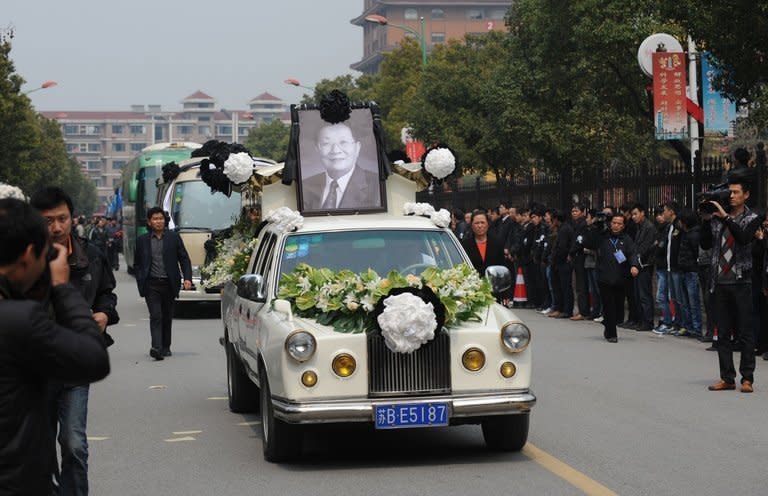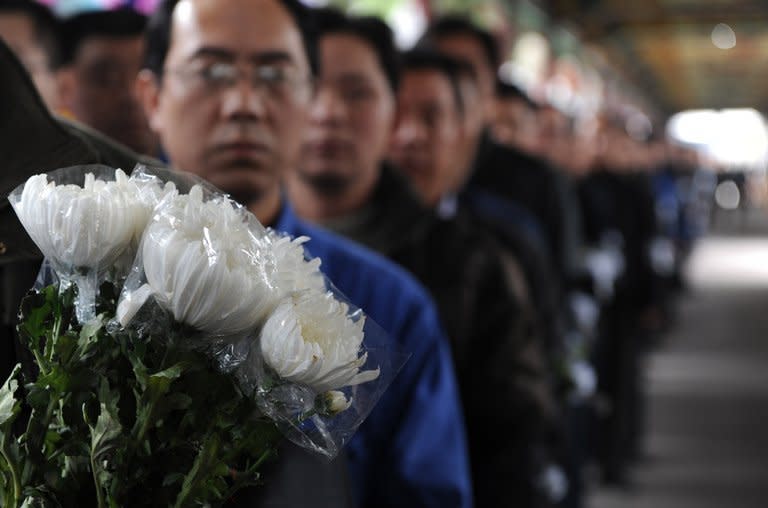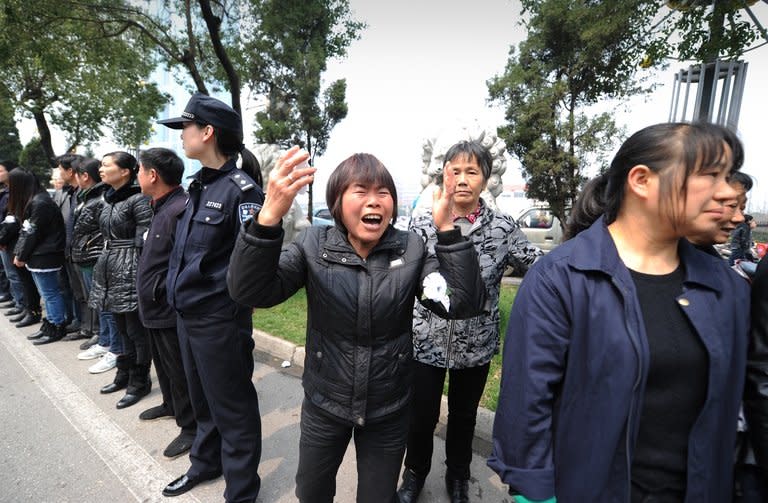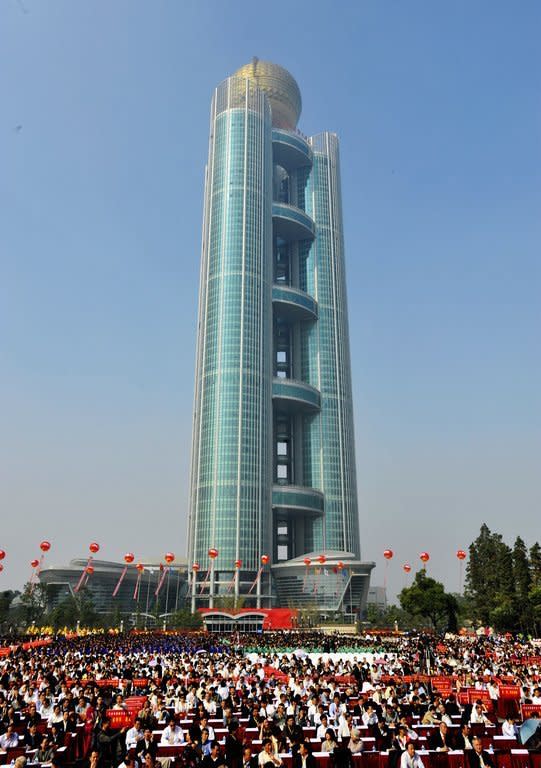'Richest' China village sends off chief in high style
Residents of China's "richest village" bid farewell Friday to the man who made Huaxi a socialist paradise, with a 20-vehicle funeral procession transporting his coffin and a helicopter flying overhead. Wu Renbao, retired Communist Party chief of the village, died on Monday of cancer aged 84. At a memorial ceremony, hundreds of mourners wearing black armbands bowed their heads in silence beneath a huge photograph of him, surrounded by wreaths made of paper flowers sent by China's top leaders. "He will be in our hearts forever," one villager said, with tears in her eyes. Huaxi is a model story for Chinese propaganda, showing how a once rural village could get rich under economic reforms launched three decades ago, but stay true to socialist ideals by sharing the wealth. Wu was in charge for more than 40 years, and turned farmers into millionaires by setting up 12 corporations ranging from textiles to steel. Now the village's 2,000 registered residents live in villas and drive luxury cars bought with profits from the collectively-owned companies. But some are more equal than others and tens of thousands of other people who now live in Huaxi do not enjoy the same benefits, while a magazine has claimed the Wu family controls more than 90 percent of the village's assets. The late leader's fourth son Wu Xie'en, who took over as village party chief in a dynastic succession in 2003, vowed to carry on his legacy, saying at the ceremony he would "truly turn Huaxi into a unique, special Shangri-La". Thousands of mourners filed through Wu's home -- a two-storey, white-painted cement building -- to pay their respects, where he lay in a plain wooden coffin, draped in a red Communist flag with only his head visible. The Wu house is a marked contrast to the ostentatiousness of much of Huaxi, in the eastern province of Jiangsu, which in 2011 unveiled one of China's tallest buildings, a $470 million, 74-storey hotel, 328 metres (1,080 feet) high. A gleaming near-life-size statue of an ox stands inside, supposedly made of solid gold. A black Mercedes-Benz and busloads of mourners accompanied the body in a white hearse to cremation, some throwing paper "ghost money" out of the windows, a tradition meant to impart wealth to the deceased in the afterlife. But China's new leadership has stressed frugality for officials as a means to crack down on corruption, and the China Daily newspaper said this week that extravagant displays of wealth and accusations of nepotism had called the Huaxi model into question. Nonetheless a villager praised Wu's humble lifestyle, saying he remained in his original house from the 1970s, and Wang Hui, a retired government official from Beijing, added: "He was a common person and he had morals." During his lifetime Wu assumed mythical status, meeting top leaders and starring as himself in a 2012 film made to mark a key Communist Party meeting. After his death, state media reported incorrectly that the US news magazine "Time" had once put him on the cover. Official figures are scarce, but the village -- which proclaims itself China's richest -- said its businesses had a total sales turnover of 50 billion yuan ($7.9 billion) in 2008. "My biggest wish is to make poor people live a good life. Communists should seek happiness for the majority of the people," Wu once said, as quoted by the official Xinhua news agency. But a migrant worker who has lived in Huaxi and toiled at its steel plant for 10 years said he received no special benefits beyond his 4,000 yuan ($635) monthly salary. "We work for a day and take a day's pay," he said. One lawyer had scathing criticism for Huaxi, saying those who left the village were stripped of their wealth and anyone who criticised founding father Wu faced retribution. "It's difficult to tell whether it (the Huaxi model) really made everyone rich as information is limited," Yuan Yulai of the Zhejiang Zhixing law firm told AFP. "Even if villagers do get rich, they can't take away their personal assets when leaving the village, so it's doubtful whether the assets belong to the villagers."





